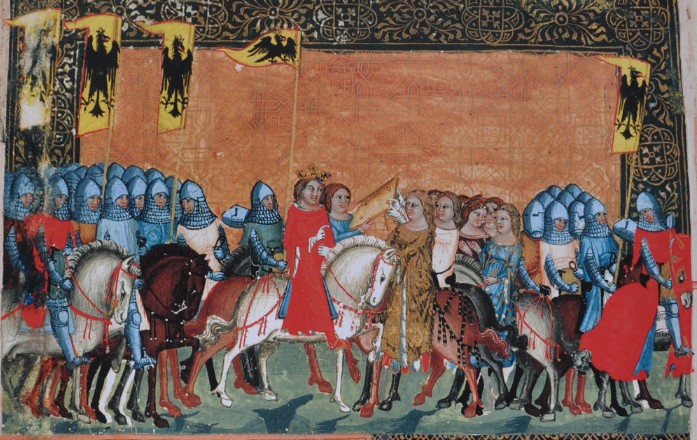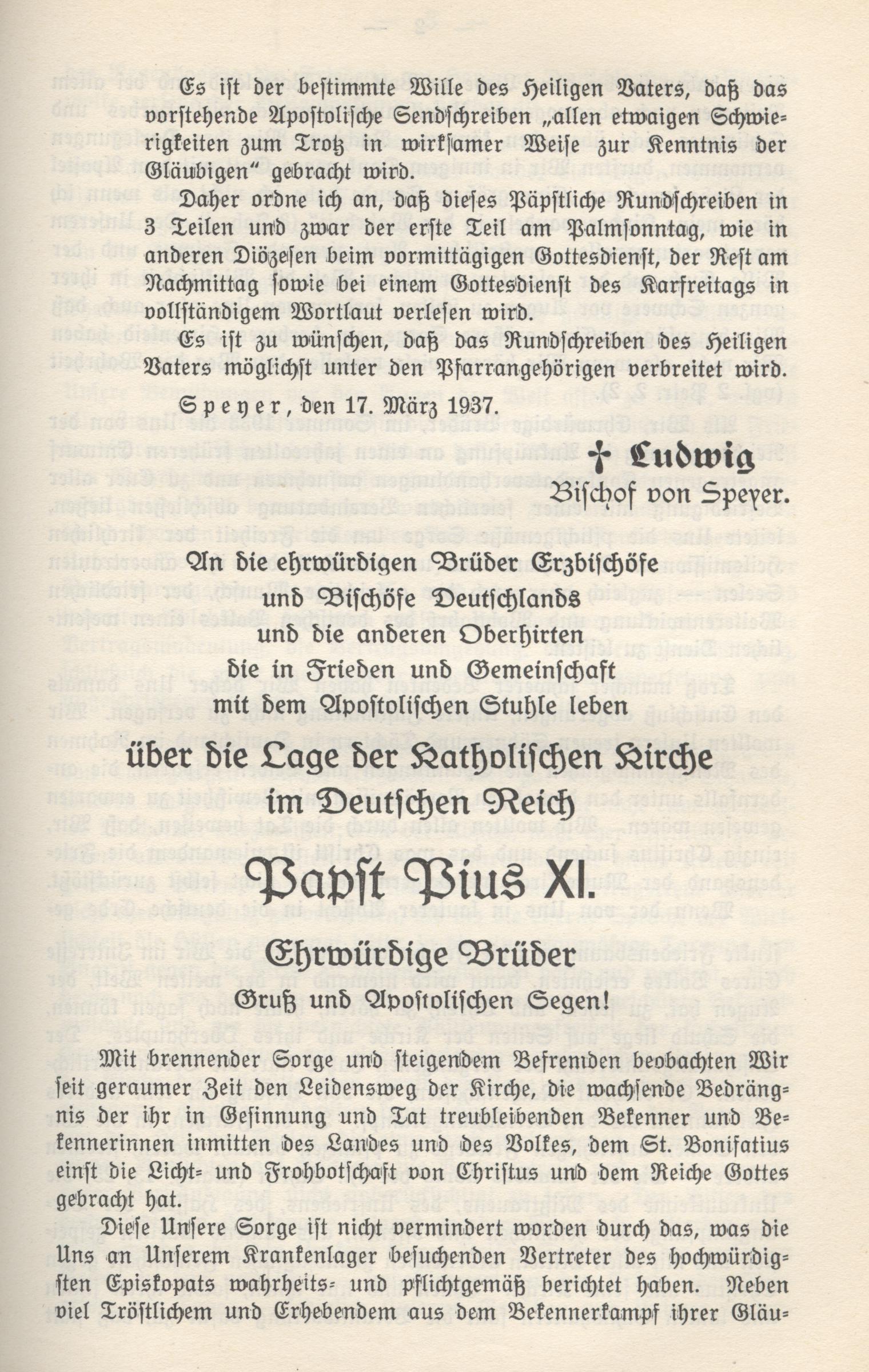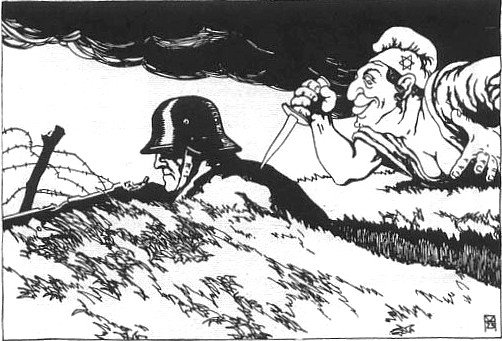|
Michael Von Faulhaber
Michael Cardinal ''Ritter'' von Faulhaber (5 March 1869 – 12 June 1952) was a German Catholic prelate who served as Archbishop of Munich for 35 years, from 1917 to his death in 1952. Created Cardinal in 1921, von Faulhaber criticized the Weimar Republic as rooted in treason in a speech at the 62nd German Catholics' Day of 1922. Cardinal von Faulhaber was a leading member and co-founder of the Amici Israel, a priestly association founded in Rome in 1926 with the goal of advocating Jewish-Christian reconciliation. After the Nazi Party seized control of German government in 1933, Cardinal von Faulhaber recognized the new Nazi government as legitimate, required Catholic clergy to be loyal to the government and maintained diplomatic bridges between the regime and the Church, while simultaneously condemning certain Nazi policies, including persecution of members of the clergy, and actively supporting Catholic regime critics such as Fritz Gerlich and other persecuted persons. In 193 ... [...More Info...] [...Related Items...] OR: [Wikipedia] [Google] [Baidu] |
His Eminence
His Eminence (abbreviation H.Em. or H.E. or HE) is a style (manner of address), style of reference for high nobility, still in use in various religious contexts. Catholicism The style remains in use as the official style or standard form of address in reference to a cardinal (Catholicism), cardinal of the Catholic Church, reflecting his status as a Prince of the Church. A longer, and more formal, title is "His (or Your when addressing the cardinal directly) Most Reverend Eminence". Patriarchs of Eastern Catholic Churches who are also cardinals may be addressed as "His Eminence" or by the style particular to Catholic patriarchs, His Beatitude. When the Grand master (order), Grand Master of the Sovereign Military Order of Malta, the head of state of their sovereign territorial state comprising the island of Malta until 1797, who had already been made a Reichsfürst (i.e., prince of the Holy Roman Empire) in 1607, became (in terms of honorary order of precedence, not in the act ... [...More Info...] [...Related Items...] OR: [Wikipedia] [Google] [Baidu] |
Cardinal (Catholic Church)
A cardinal ( la, Sanctae Romanae Ecclesiae cardinalis, literally 'cardinal of the Holy Roman Church') is a senior member of the clergy of the Catholic Church. Cardinals are created by the ruling pope and typically hold the title for life. Collectively, they constitute the College of Cardinals. Their most solemn responsibility is to elect a new pope in a conclave, almost always from among themselves (with a few historical exceptions), when the Holy See is vacant. During the period between a pope's death or resignation and the election of his successor, the day-to-day governance of the Holy See is in the hands of the College of Cardinals. The right to participate in a conclave is limited to cardinals who have not reached the age of 80 years by the day the vacancy occurs. In addition, cardinals collectively participate in papal consistories (which generally take place annually), in which matters of importance to the Church are considered and new cardinals may be created. Cardina ... [...More Info...] [...Related Items...] OR: [Wikipedia] [Google] [Baidu] |
Schweinfurt
Schweinfurt ( , ; ) is a city in the district of Lower Franconia in Bavaria, Germany. It is the administrative centre of the surrounding district (''Landkreis'') of Schweinfurt and a major industrial, cultural and educational hub. The urban agglomeration has 100,200 (2018) and the city's catchment area, including the Main-Rhön region and parts of South Thuringia, 759,000 inhabitants. Schweinfurt was first documented in 791 and is one of the oldest cities in Bavaria. Around 1000 the Margraves of Schweinfurt controlled large parts of northern Bavaria. From the 12th century until 1802 Schweinfurt was a Free imperial city within the Holy Roman Empire, around 1700 a humanistic centre and in 1770 began the 250-year industrial history. During World War II, the Americans suffered their biggest air defeat over Schweinfurt in the Second Raid on Schweinfurt ''(Black Thursday)''. On 11 April 1945, the US Army invaded the city. During the Cold ... [...More Info...] [...Related Items...] OR: [Wikipedia] [Google] [Baidu] |
Gymnasium (school)
''Gymnasium'' (and variations of the word) is a term in various European languages for a secondary school that prepares students for higher education at a university. It is comparable to the US English term '' preparatory high school''. Before the 20th century, the gymnasium system was a widespread feature of educational systems throughout many European countries. The word (), from Greek () 'naked' or 'nude', was first used in Ancient Greece, in the sense of a place for both physical and intellectual education of young men. The latter meaning of a place of intellectual education persisted in many European languages (including Albanian, Bulgarian, Estonian, Greek, German, Hungarian, the Scandinavian languages, Dutch, Polish, Czech, Serbo-Croatian, Macedonian, Slovak, Slovenian and Russian), whereas in other languages, like English (''gymnasium'', ''gym'') and Spanish (''gimnasio''), the former meaning of a place for physical education was retained. School structure Be ... [...More Info...] [...Related Items...] OR: [Wikipedia] [Google] [Baidu] |
Priest
A priest is a religious leader authorized to perform the sacred rituals of a religion, especially as a mediatory agent between humans and one or more deities. They also have the authority or power to administer religious rites; in particular, rites of sacrifice to, and propitiation of, a deity or deities. Their office or position is the 'priesthood', a term which also may apply to such persons collectively. A priest may have the duty to hear confessions periodically, give marriage counseling, provide prenuptial counseling, give spiritual direction, teach catechism, or visit those confined indoors, such as the sick in hospitals and nursing homes. Description According to the trifunctional hypothesis of prehistoric Proto-Indo-European society, priests have existed since the earliest of times and in the simplest societies, most likely as a result of agricultural surplus and consequent social stratification. The necessity to read sacred texts and keep temple or church rec ... [...More Info...] [...Related Items...] OR: [Wikipedia] [Google] [Baidu] |
Pope Benedict XVI
Pope Benedict XVI ( la, Benedictus XVI; it, Benedetto XVI; german: link=no, Benedikt XVI.; born Joseph Aloisius Ratzinger, , on 16 April 1927) is a retired prelate of the Catholic church who served as the head of the Church and the sovereign of the Vatican City State from 19 April 2005 until his resignation on 28 February 2013. Benedict's election as pope occurred in the 2005 papal conclave that followed the death of Pope John Paul II. Benedict has chosen to be known by the title "pope emeritus" upon his resignation. Ordained as a priest in 1951 in his native Bavaria, Ratzinger embarked on an academic career and established himself as a highly regarded theologian by the late 1950s. He was appointed a full professor in 1958 at the age of 31. After a long career as a professor of theology at several German universities, he was appointed Archbishop of Munich and Freising and created a cardinal by Pope Paul VI in 1977, an unusual promotion for someone with little pastoral expe ... [...More Info...] [...Related Items...] OR: [Wikipedia] [Google] [Baidu] |
Mit Brennender Sorge
''Mit brennender Sorge'' ( , in English "With deep anxiety") ''On the Church and the German Reich'' is an encyclical of Pope Pius XI, issued during the Nazi Germany, Nazi era on 10 March 1937 (but bearing a date of Passion Sunday, 14 March)."Church and state through the centuries", Sidney Z. Ehler & John B Morrall, pp. 518–519, org pub 1954, reissued 1988, Biblo & Tannen, 1988, Written in German language, German, not the usual Latin, it was smuggled into Germany for fear of censorship and was read from the pulpits of all German Catholic churches on one of the Church's busiest Sundays, Palm Sunday (21 March that year).Anton Gill; An Honourable Defeat; A History of the German Resistance to Hitler; Heinemann; London; 1994; p.58 The encyclical condemned breaches of the 1933 ''Reichskonkordat'' agreement signed between the German Reich and the Holy See. It condemned "pantheistic confusion", "neopaganism", "the so-called myth of race and blood", and the idolizing of the State. I ... [...More Info...] [...Related Items...] OR: [Wikipedia] [Google] [Baidu] |
Fritz Gerlich
Carl Albert Fritz Michael Gerlich (15 February 1883 – 30 June 1934) was a German journalist and historian, and one of the main journalistic resistors of Adolf Hitler. He was arrested, later killed and cremated at the Dachau concentration camp. Early life Gerlich was born in Stettin, Pomerania, and grew up as the eldest of the three sons of wholesale and retail fishmonger Paul Gerlich and his wife Therese. In Autumn 1889, Gerlich was enrolled in the Marienstiftungymnasium (Our Lady's Grammar School) and graduated from his senior class there in 1901. In 1902 he began his studies at the University of Munich, and first majored in mathematics and natural sciences before switching to history. At the university, he was an active member of the Freistudentenschaft (Free Student Union, sometimes translated as Free Student Association). He wrote his doctoral dissertation "The Testament of Henry VI" and completed it in 1907. On 9 October 1920, he married Sophie Botzenhart, born Stempfle ... [...More Info...] [...Related Items...] OR: [Wikipedia] [Google] [Baidu] |
Opus Sacerdotale Amici Israel
The Opus sacerdotale Amici Israel or the Clerical Association of Friends of Israel, was a short-lived international organization of Roman Catholic priests founded in Rome in February 1926. Its purpose was to pray for the conversion of the Jews and to promote a favorable attitude towards them within the Roman Catholic Church. By the end of the year, its membership included 18 cardinals, 200 bishops and about 2,000 priests. When the association was dissolved by the Holy Office on 28 March 1928, its membership included 19 cardinals, more than 300 bishops and archbishops and about 3,000 priests. Its ideas were outlined in leaflets written in Latin and circulated among the clergy. Its first request to the Church was that the word "perfidis", which described the Jews during the Good Friday Prayer for the Jews, be removed, since some believed the prayer could be interpreted as anti-Semitic. Pope Pius XI asked the Congregation of Rites to consider the proposed reform. Alfredo Ildefons ... [...More Info...] [...Related Items...] OR: [Wikipedia] [Google] [Baidu] |
Katholikentag
''Katholikentag'' () is a festival-like gathering in German-speaking countries organized by laity of the Catholic Church. ''Katholikentag'' festivals occur approximately every 2–4 years in Germany, Switzerland, and Austria. ''Katholikentag'' in Germany History The first official Katholikentag festival was organized by Adam Franz Lennig and held in Mainz from 3 to 6 October 1848. The idea was a "general assembly of Catholic society in Germany" (''Generalversammlung des katholischen Vereins Deutschlands''), originally intended for delegates of the Catholic Church in Germany. The 87 delegates and about 100 visitors met with the aim of improving relations between the Catholic Church in Germany and the German government. During the ensuing decades the Katholikentags increased in popularity and fame. They became an opportunity for Catholics to discuss and celebrate their faith. Since then, the Roman Catholic Church in Germany has become one of a set of state religions. Katholikentag ... [...More Info...] [...Related Items...] OR: [Wikipedia] [Google] [Baidu] |
Stab-in-the-back Myth
The stab-in-the-back myth (, , ) was an antisemitic conspiracy theory that was widely believed and promulgated in Germany after 1918. It maintained that the Imperial German Army did not lose World War I on the battlefield, but was instead betrayed by certain citizens on the home front—especially Jews, revolutionary socialists who fomented strikes and labor unrest, and other republican politicians who had overthrown the House of Hohenzollern in the German Revolution of 1918–1919. Advocates of the myth denounced the German government leaders who had signed the Armistice of 11 November 1918 as the "November criminals" (german: Novemberverbrecher, label=none). When Adolf Hitler and the Nazi Party rose to power in 1933, they made the conspiracy theory an integral part of their official history of the 1920s, portraying the Weimar Republic as the work of the "November criminals" who had "stabbed the nation in the back" in order to seize power. Nazi propaganda depicted W ... [...More Info...] [...Related Items...] OR: [Wikipedia] [Google] [Baidu] |
Weimar Republic
The Weimar Republic (german: link=no, Weimarer Republik ), officially named the German Reich, was the government of Germany from 1918 to 1933, during which it was a constitutional federal republic for the first time in history; hence it is also referred to, and unofficially proclaimed itself, as the German Republic (german: Deutsche Republik, link=no, label=none). The state's informal name is derived from the city of Weimar, which hosted the constituent assembly that established its government. In English, the republic was usually simply called "Germany", with "Weimar Republic" (a term introduced by Adolf Hitler in 1929) not commonly used until the 1930s. Following the devastation of the First World War (1914–1918), Germany was exhausted and sued for peace in desperate circumstances. Awareness of imminent defeat sparked a revolution, the abdication of Kaiser Wilhelm II, formal surrender to the Allies, and the proclamation of the Weimar Republic on 9 November 1918. In its i ... [...More Info...] [...Related Items...] OR: [Wikipedia] [Google] [Baidu] |






